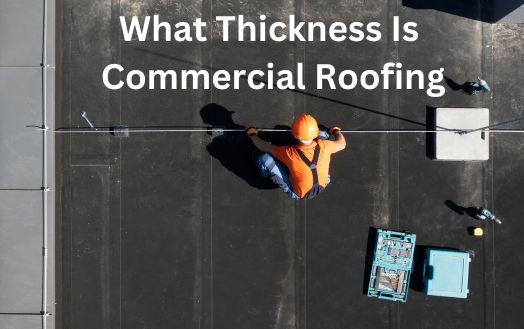
Commercial roofing thickness involves crucial considerations to ensure structural integrity. It encompasses material selection, variations in thickness for different roof types, and the impact of roofing thickness on energy efficiency. Factors like metal gauge for thinner metal roofs, and general guidelines for residential projects play a pivotal role in determining the optimal thickness. Additionally, the choice of metal roofing color and its impact on energy efficiency is also a key aspect of commercial roofing thickness. Pole barn constructions also require specific guidelines for selecting the right roofing thickness. Let us find out from this article what thickness is commercial roofing required.
Choosing the right thickness for commercial roofing is critical for its structural integrity and ability to withstand harsh weather conditions. Thicker materials offer better protection against heavy winds and extreme weather, while also managing the weight of heavy snowfall more effectively. The correct gauge metal roof panels ensure superior durability, making them an excellent choice for commercial buildings. This decision plays a vital role in ensuring the long-term performance and reliability of the roofing system, making it a crucial factor to consider in commercial construction projects.
When selecting materials for commercial roofing, it’s essential to consider industry-standard gauges suitable for the application. Metal roofing, a popular choice, offers different thicknesses to meet various needs. The structural sheathing of the roof depends on the type of metal and its gauge, making thicker gauge metal roofing preferable for extreme weather conditions in commercial buildings. The correct gauge of the metal roof panel significantly influences the durability benefits of the roofing system.
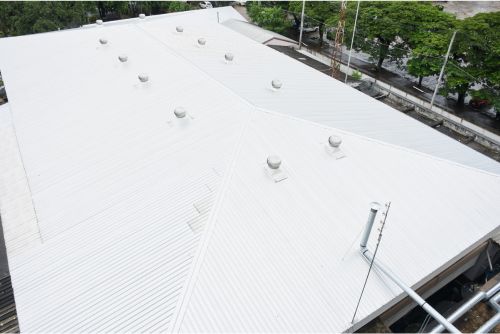
When it comes to commercial roofing, different materials and types require varying thickness parameters based on factors such as structural requirements and climate considerations. For instance, thinner metal roofing is commonly used in pole barns and residential projects, while the metal gauge and thickness may vary for different roofing materials. Additionally, general guidelines for commercial roofing thickness often consider the impact of thickness on energy efficiency and durability, as well as the aesthetic appeal, including metal roofing color options.
When considering commercial roofing materials, the metal gauge plays a crucial role in protecting against extreme weather conditions. So, what thickness is commercial roofing needed? Opting for thicker metal panels is essential for ensuring structural durability, especially for commercial applications. While gauge metal roofing may be more expensive, its long-term benefits make it a worthy investment. The minimum thickness of metal roofing panels should be determined based on the specific project requirements. In areas prone to heavy rain and snowfall, choosing thicker panels is highly advisable for commercial buildings.
When selecting metal roofing for commercial applications, it’s important to consider variations in thickness for different roof types. Standing seam roof panels come in various thicknesses, offering flexibility for commercial projects. Thicker gauge metal roof panels are ideal for buildings located in areas with heavy winds and snowfall. While thinner panels may suffice for residential projects, thicker materials provide better protection against heavy rain and snowfall, making them the preferred choice for commercial roofing. These variations in metal gauge cater to the specific requirements of different roof types, ensuring optimal performance and durability.
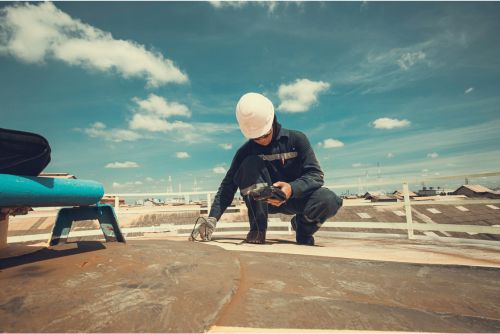
When selecting the right roofing thickness, consider the role of the building structure and the influence of climatic conditions. Assess the cost implications of different roofing thicknesses, considering the potential long-term benefits. Professional guidance from a roofing contractor can help in making an informed decision. It is essential to weigh the pros and cons of opting for thicker or thinner roofing based on the specific requirements of the project. By understanding these factors, you can make an optimal choice for your commercial roofing needs.
When determining roofing thickness, the building structure’s durability is a crucial consideration, particularly in harsh weather conditions. Thicker gauge metal roofing panels play a significant role in ensuring the longevity and structural integrity of the building. They provide better protection against heavy winds and severe weather, making them essential for commercial applications. The proper choice of thickness is imperative for the structural integrity of commercial buildings, offering enhanced protection against extreme weather conditions. This makes thicker metal panels an optimal choice for ensuring the long-term sustainability of the building structure.
When choosing the right roofing thickness, it’s essential to consider the influence of climatic conditions. Thicker metal roofing gauge is suitable for extreme weather, effectively managing heavy winds and snowfall. This choice offers better protection against harsh weather, making it ideal for commercial buildings. Additionally, superior durability ensures that the correct gauge metal roofing can withstand heavy rain, snowfall, and extreme weather conditions, making it a reliable option for commercial applications. These factors make the right thickness crucial for withstanding varying climatic conditions.
Thicker metal roofing panels, although the most expensive, offer long-term durability benefits. Proper gauge choice can prevent oil canning and reduce maintenance costs. Thicker gauge metal roofing is optimal for commercial applications, despite the higher initial cost, ensuring better protection against extreme weather conditions and reducing commercial roof repair NJ costs. Additionally, thicker panels contribute to the structural role of the building, outweighing the initial cost implications. These factors should be carefully considered when evaluating the cost implications of different roofing thicknesses.
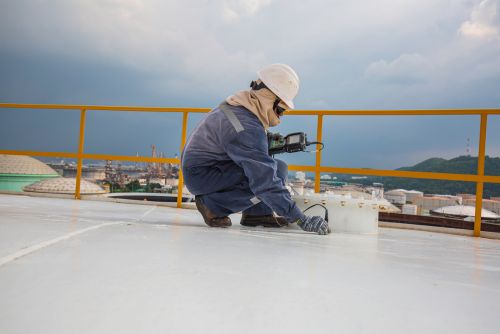
Thicker commercial roofing offers enhanced durability, better insulation, and noise reduction. It provides greater protection against environmental elements and reduces the risk of damage. However, thicker roofing may incur higher material and installation costs. Additionally, it adds more weight to the structure, requiring potential reinforcement. When considering the pros and cons, it’s crucial to evaluate the specific needs of the building and the long-term benefits of investing in thicker roofing materials.
When considering commercial roofing, opting for thicker roofing can bring several advantages. Thicker roofing better endures extreme weather conditions and provides enhanced structural support for the building. It offers superior protection against heavy winds and snowfall while also improving durability and extending the roof’s lifespan. Reduced maintenance needs are another benefit of choosing thicker roofing, making it a favorable option for long-term performance and cost-effectiveness.
When considering thicker commercial roofing, it’s important to be mindful of potential drawbacks. Initially, opting for thicker roofing may incur higher costs. Additionally, the increased weight of the roofing can put added stress on the building structure. For buildings with structural limitations, thicker roofing may not be a suitable choice. Moreover, the installation process for thicker roofing can be complex and may require professional expertise. In some cases, opting for thicker roofing may necessitate structural sheathing, further adding to the overall project cost.
Thinner commercial roofing materials offer cost efficiency without compromising quality. Utilizing metal gauge properly ensures durability, making it a practical choice for pole barns and residential projects. The wider availability of metal roofing colors provides flexibility in design while adhering to general guidelines for installation. However, the cons include potential limitations in extreme weather conditions and noise levels. Considering these factors, thin commercial roofing is a viable option for various projects with careful evaluation.
When considering roofing options, thinner roofing offers a cost-effective solution for residential buildings, making it a great choice for residential applications. Particularly suited for mild climate conditions, thin commercial roofing provides low maintenance benefits, reducing upkeep costs for residential projects. Additionally, it offers a favorable option for commercial buildings in the United States, adhering to general guidelines while also considering factors like metal gauge and metal roofing color for pole barn and residential projects.
Thin commercial roofing may not provide the same level of durability as thicker roofing, potentially compromising its long-term performance. In extreme weather conditions, opting for thinner roofing panels might lead to structural issues and a higher susceptibility to oil canning. Additionally, thin commercial roofing may not offer optimal protection in severe weather conditions, raising concerns about its suitability for such environments. Furthermore, thinner roofing panels may not fulfill the same structural role as their thicker counterparts, potentially impacting the overall integrity of the roofing system.
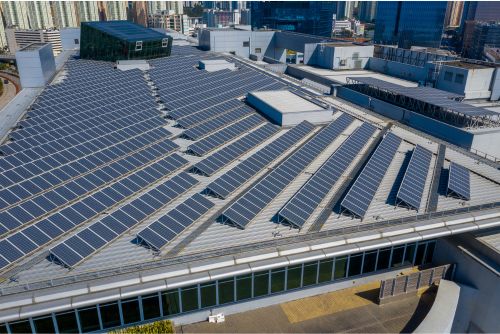
Enhancing energy efficiency is vital when considering commercial roofing thickness. The right thickness plays a crucial role in reducing heating and cooling costs, making it imperative to choose wisely. Optimal thickness can significantly enhance energy efficiency for commercial establishments, affecting both operational costs and environmental sustainability. Factors such as insulation, material selection, and climate considerations influence the energy-saving potential of the roofing system. Thinner metal gauge, in particular, offers specific benefits for energy efficiency, making it an attractive option for commercial and residential projects. Following general guidelines for what thickness is commercial roofing required can further contribute to improved energy performance.
When considering the impact of roofing thickness on heating and cooling costs, it’s important to note that optimal roof thickness can significantly enhance insulation, resulting in reduced heating and cooling expenses. Additionally, the right gauge of the metal roof plays a pivotal role in improving energy efficiency, ultimately leading to lower utility bills. The thickness of the metal panel directly affects the building’s interior temperature regulation, showing how crucial roofing thickness is in maintaining comfortable indoor environments. By carefully choosing the right thickness, significant improvements in energy efficiency can be achieved, benefiting both residential projects and commercial buildings.
Enhancing energy efficiency through optimal roof thickness is crucial for reducing overall building energy consumption. The correct metal gauge for roof panels can significantly enhance energy efficiency, contributing to better insulation and maintaining a comfortable indoor climate. This not only saves on energy usage but also plays a vital role in improving the overall energy efficiency of the building. By following general guidelines for optimal roof thickness, both residential and commercial projects can benefit from significant energy savings.
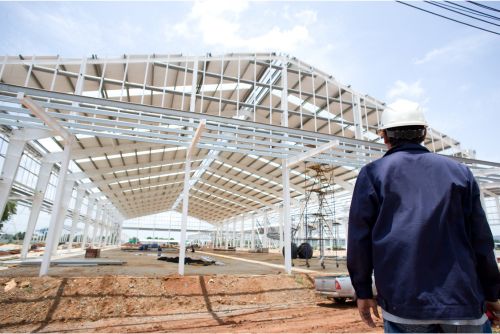
When choosing commercial roofing thickness, seeking professional guidance is crucial. A professional commercial roofing contractor NJ can provide insights on the role of building structure and climatic conditions in determining the optimal thickness. Additionally, they can offer advice on the cost implications of different thickness options, helping you make an informed decision. Asking about thinner metal gauge, metal roofing color options, and general guidelines for residential projects or pole barn construction can also provide valuable insights. Professional guidance ensures that the chosen thickness aligns with energy efficiency and long-term durability, making it a worthwhile investment for your commercial property.
When considering commercial roofing, hiring a commercial roofing company NJ is essential. These experts ensure proper installation and maintenance of roofing systems, complying with industry standards and safety regulations. Their knowledge and experience enable them to recommend the most suitable roofing thickness for commercial applications, taking into account structural considerations such as snow load and harsh weather conditions. Additionally, professional contractors provide reliable advice on the correct metal gauge for commercial buildings. Their expertise is invaluable for ensuring the longevity and performance of commercial roofing systems.
When engaging a roofing contractor for a commercial project, it’s vital to inquire about the durability benefits of thinner metal panels. Seeking information on metal gauge standards and their usage in commercial projects is crucial. Additionally, discussing how roofing thickness enhances protection against extreme weather conditions is important. For buildings in severe weather-prone areas, asking about the recommended metal roofing gauge is essential. Lastly, querying the contractor about the industry standard for commercial roofing thickness and its structural significance provides valuable insight.
Common misconceptions often lead to decisions that do not align with the actual needs of a commercial roofing project. It’s important to understand that the thickness of a panel isn’t the sole determinant of a roofing system’s durability. Factors such as material and metal gauge play crucial roles. Thicker panels don’t always guarantee superior durability, as the type of metal and structural sheathing are equally important. Additionally, thinner panels can be suitable for commercial applications in mild climate conditions, contrary to common belief. It’s essential to debunk the myth that the thickest option in metal roofing gauge is always the most expensive and best choice for commercial projects. Furthermore, the weight of snow a commercial metal roof can bear isn’t solely determined by roof gauge; the roofing system’s design also matters.
When considering roofing thickness, it’s essential to debunk the myth that thicker gauge metal roofing always guarantees a system’s ability to withstand extreme weather and no commercial leak repair NJ needed. In commercial applications, thinner gauge metal roofing can offer low maintenance and durability benefits, proving to be a better choice. It’s important to align the gauge of metal roof panels with the building structure and the intended use in commercial applications, as it alone does not determine a roof’s ability to endure harsh conditions. Therefore, the misconception that the thickest option provides the best solution for commercial buildings needs to be debunked.
Thicker metal roofing gauge may not always be the best choice. Consider factors like building structure and industry guidelines for minimum thickness in severe weather conditions. Thinner gauge options can provide durability benefits and low maintenance, making them a viable option for commercial roofing.
In conclusion, the thickness of commercial roofing plays a crucial role in ensuring durability, energy efficiency, and cost-effectiveness. It is important to understand the impact of material selection, variations in thickness for different roof types, and the role of building structure and climatic conditions in determining the right roofing thickness. While thicker roofing offers advantages such as enhanced durability and insulation, there are also potential drawbacks such as increased costs due to multiple commercial roofing replacement NJ. On the other hand, thinner roofing can provide benefits such as cost savings, but it may lack durability and insulation properties. To make an informed decision, it is recommended to seek professional guidance from a roofing contractor who can assess your specific needs and answer any questions you may have. Remember, the right commercial roofing thickness is a balance between functionality, durability, and cost-efficiency.